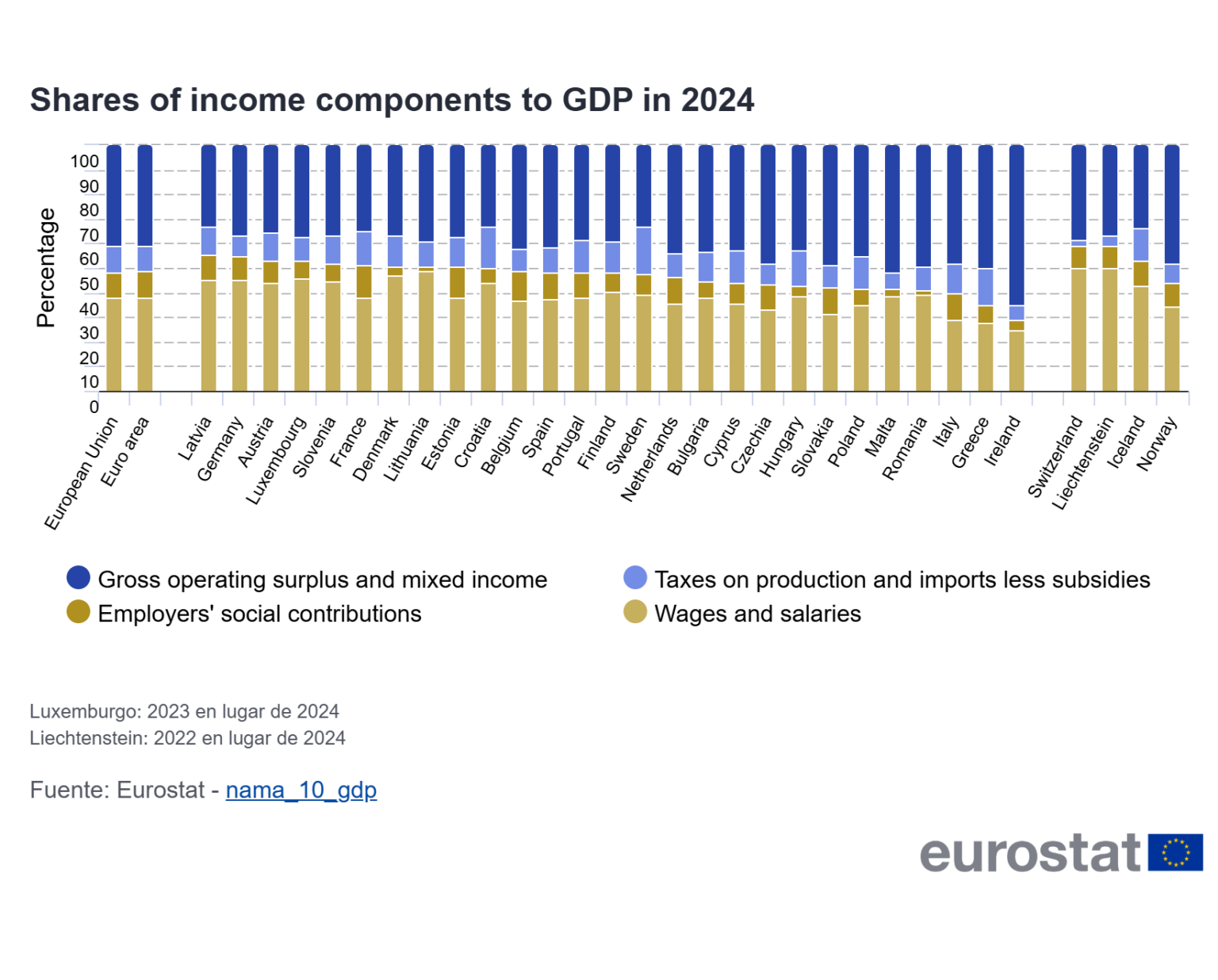
In 2024, employee compensation was the main component of income in the European Union (EU), accounting for 47.9% of GDP and 48.5% in the eurozone. This marked an increase of 0.9 and 0.8 percentage points (pp) respectively compared to 2023.
Fourteen countries exceeded the EU average in this indicator, with Latvia (55.4%), Germany (54.5%), and Austria (52.9%) leading the rankings. In nine countries, this component represented more than half of the GDP. On the opposite end, Ireland recorded the lowest share (28.5%) due to globalization effects on its economy.
Taxes on production and imports (minus subsidies) rose to 11.2% of GDP in the EU, with Sweden (19.5%) and Croatia (16.9%) at the highest levels. Meanwhile, the gross operating surplus and mixed income, reflecting corporate profits and self-employed earnings, fell to 40.9% in the EU and 40.7% in the eurozone, with decreases of -1.3 pp and -1.2 pp, respectively.
Over the past 20 years, the share of employee compensation in GDP has increased in the EU (+1.3 pp) and the eurozone (+1.6 pp). Latvia (+15.6 pp) and Lithuania (+10.9 pp) recorded the highest increases, while Ireland saw the largest decline (-9.5 pp). During the same period, the share of wages and salaries also rose in the EU (+1.8 pp) and the eurozone (+1.9 pp), while employers’ social contributions saw a slight decrease.
Regarding taxes on production and imports, their share of GDP has fluctuated over the past two decades, declining during the 2008-2009 financial crisis and the COVID-19 pandemic. By 2024, they had not yet returned to pre-pandemic levels. Meanwhile, the share of gross operating surplus and mixed income, after rising between 2020 and 2023, declined in 2024 to levels similar to 2020, reflecting shifts in the income structure of the European economy.
source: EUROSTAT